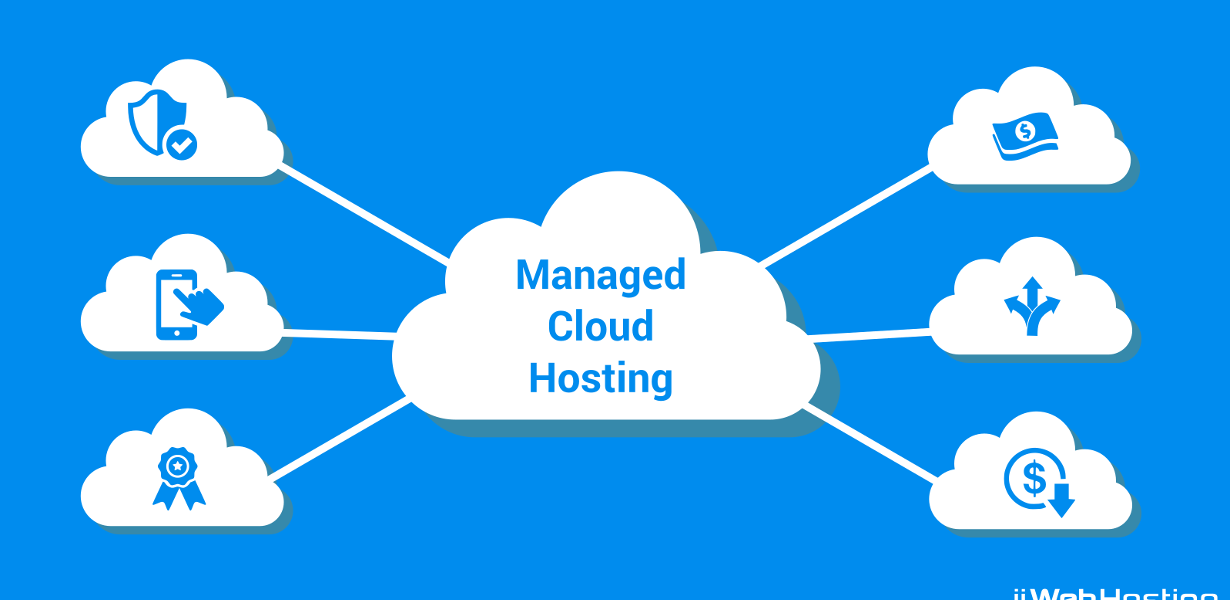
In the ever-evolving landscape of technology, staying at the forefront of innovations is not only a desire but a necessity. Cloud hosting has become the cornerstone of modern businesses, offering unprecedented scalability, security, and flexibility. As we step into 2023, tech enthusiasts and business owners alike are in for a treat, with cutting-edge advancements in managed cloud hosting. In this comprehensive guide, we will delve deep into the latest trends, technologies, and best practices to help you make informed decisions. Let’s embark on a journey through the dynamic realm of managed cloud hosting.
Evolution of Managed Cloud Hosting
Managed cloud hosting has come a long way, transforming the way businesses operate and scale their digital infrastructure. This year, we witness the convergence of several trends, revolutionizing the landscape:
Hybrid Cloud Solutions
Hybrid cloud solutions have gained traction, enabling businesses to seamlessly integrate public and private cloud environments. This approach provides greater flexibility in managing workloads, enhancing efficiency, and ensuring data security.
Edge Computing
Edge computing is making its presence felt, as it brings computation closer to data sources. This allows for quicker data processing, reduced latency, and is crucial for applications like IoT and real-time analytics.
AI-Driven Management
Artificial Intelligence is playing a pivotal role in managing and optimizing cloud resources. AI-driven solutions are becoming more prevalent, automating routine tasks, and making real-time adjustments based on usage patterns.
Zero-Trust Security
Security remains a top concern, and zero-trust security models are gaining prominence. This approach ensures that no one, whether inside or outside the network, is trusted by default, requiring strict identity verification.
Key Features of Managed Cloud Hosting
When evaluating managed cloud hosting solutions, it’s crucial to consider the key features that set them apart.
Scalability
One of the primary advantages of managed cloud hosting is its scalability. Businesses can effortlessly scale their resources up or down, ensuring they pay only for what they use. This flexibility is a game-changer, especially for startups and growing enterprises.
High Availability
Managed cloud hosting ensures high availability, with redundant systems and failover mechanisms in place. Downtime is minimized, ensuring that your services remain accessible to customers around the clock.
Managed Security
Security is paramount, and managed cloud hosting providers offer robust security measures. They handle security patches, updates, and monitoring, reducing the burden on your IT team.
Performance Optimization
Providers continually optimize performance, ensuring that your applications and websites load quickly. Content delivery networks (CDNs) and caching mechanisms contribute to faster load times.
Industry-Leading Managed Cloud Hosting Providers
With the ever-increasing demand for managed cloud hosting, several providers have risen to the occasion, offering a range of services and solutions. Here are a few industry leaders:
Amazon Web Services (AWS)
AWS remains a global giant, offering a vast array of services and tools for cloud hosting. With data centers worldwide, AWS provides unmatched scalability and reliability.
Microsoft Azure
Microsoft Azure is another top choice for businesses looking for a trusted cloud provider. Azure’s strong integration with Microsoft products makes it a preferred choice for enterprises.
Google Cloud Platform (GCP)
Google Cloud is known for its innovation and data analytics capabilities. With GCP, you can tap into Google’s vast infrastructure and machine learning resources.
IBM Cloud
IBM Cloud combines cloud and AI to offer unique solutions. They excel in hybrid cloud environments and are known for their commitment to data security.
Final words
As 2023 unfolds, managed cloud hosting promises to be a tech enthusiast’s paradise. The fusion of hybrid cloud solutions, edge computing, AI-driven management, and zero-trust security is reshaping the cloud hosting landscape. With scalability, high availability, and managed security as key features, businesses are well-positioned to thrive in this dynamic environment. Leading providers like AWS, Azure, Google Cloud, and IBM Cloud offer a wide range of options to cater to diverse business needs. Whether you’re a startup looking for cost-effective solutions or an enterprise seeking the highest levels of security, there’s a managed cloud hosting option tailored for you. Stay ahead in the tech game by embracing these innovations and making the most of what managed cloud hosting has to offer.
Commonly Asked Questions
Q1: What is the difference between managed cloud hosting and traditional hosting?
Managed cloud hosting offers greater scalability, reliability, and security compared to traditional hosting. It leverages cloud technology to provide on-demand resources and managed services, making it a preferred choice for modern businesses.
Q2: How do I choose the right managed cloud hosting provider?
When selecting a managed cloud hosting provider, consider factors such as your specific business needs, scalability requirements, security features, and the provider’s reputation for customer support. It’s essential to align the provider’s offerings with your organization’s goals.
Q3: Is managed cloud hosting suitable for small businesses?
Managed cloud hosting is a flexible solution suitable for businesses of all sizes, including small enterprises. It allows small businesses to access enterprise-grade infrastructure without the need for a large IT team.
Q4: What is the role of AI in managed cloud hosting?
AI plays a crucial role in managed cloud hosting by automating routine tasks, optimizing performance, and enhancing security. AI-driven solutions monitor and manage cloud resources, making the hosting environment more efficient and secure.
Q5: How does managed cloud hosting contribute to data security?
Managed cloud hosting providers prioritize data security by implementing strict security measures, including zero-trust models, encryption, and continuous monitoring. This helps businesses safeguard their data and ensure compliance with industry regulations.
Advertisement







